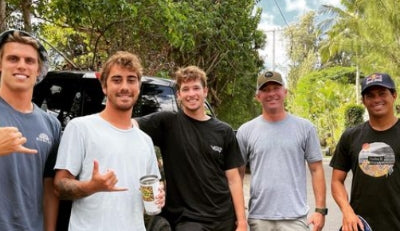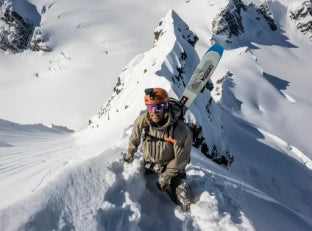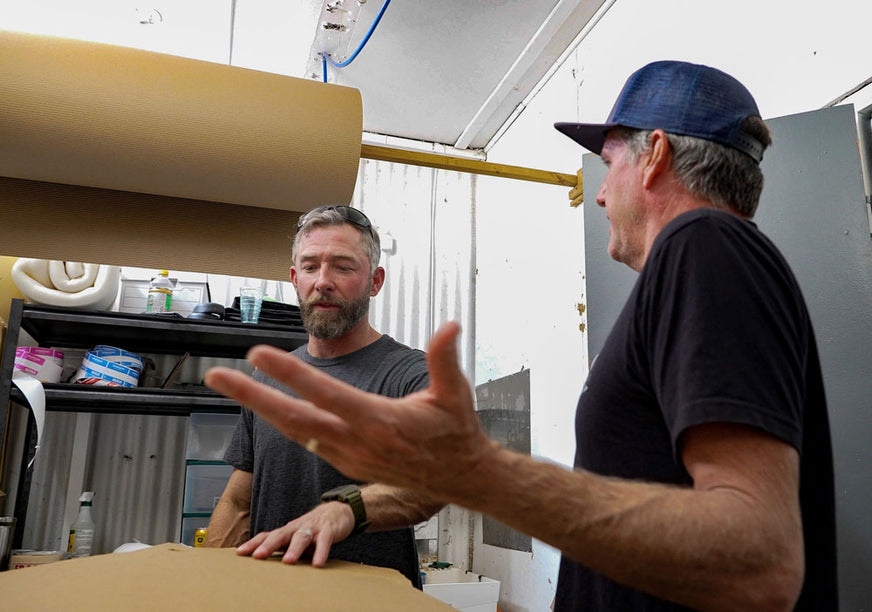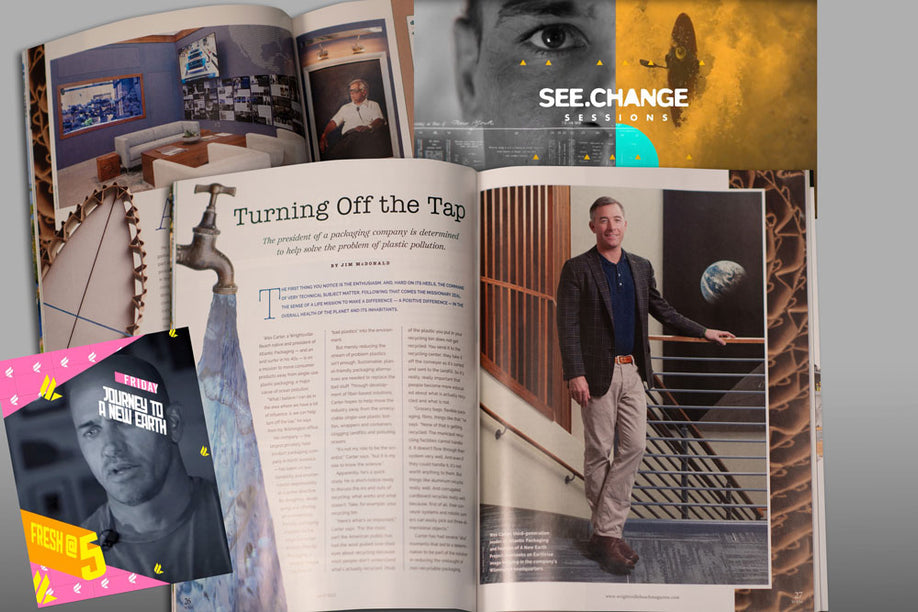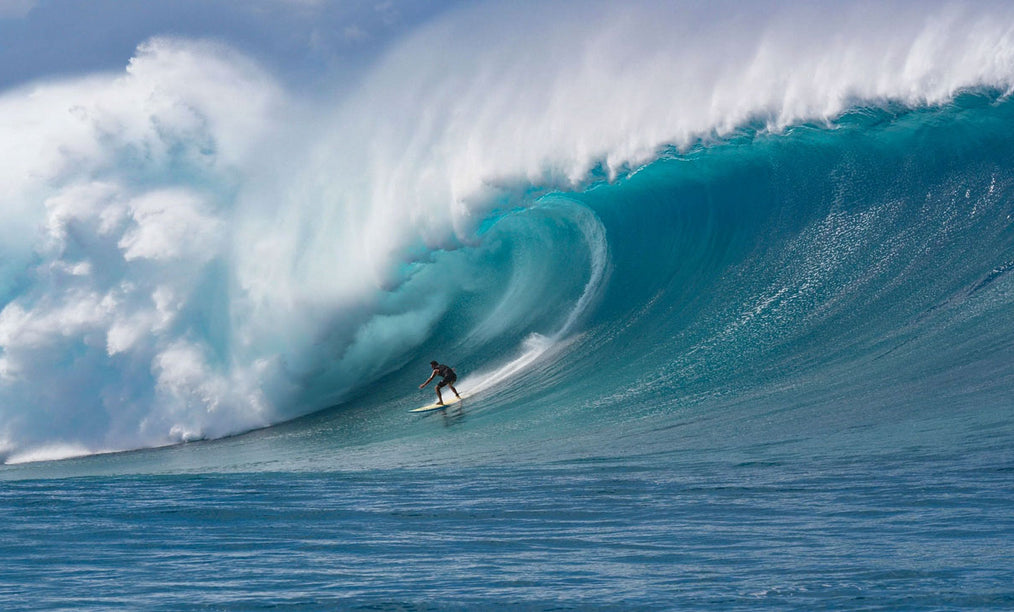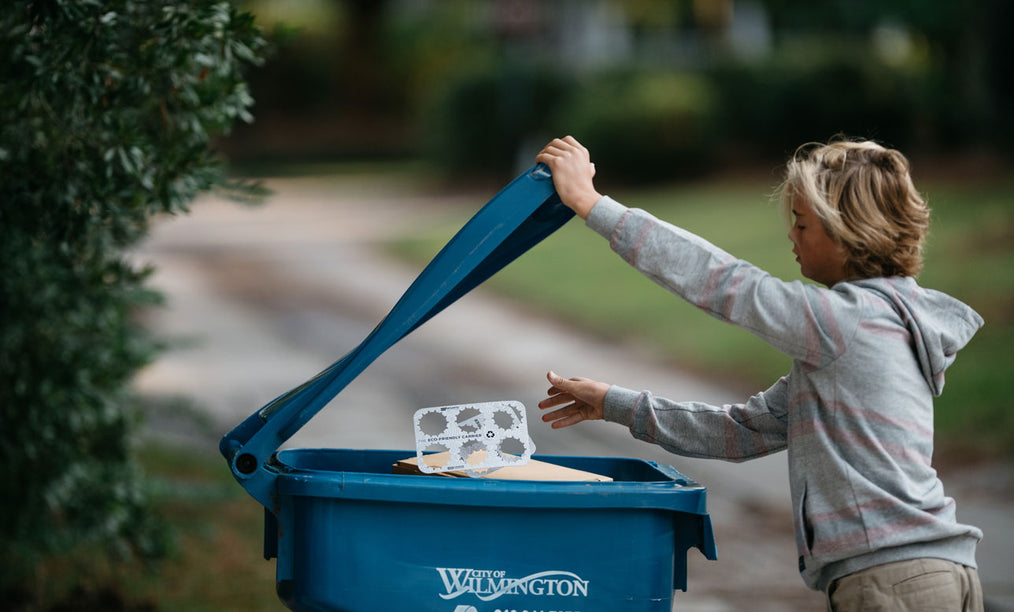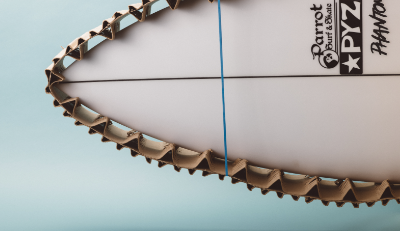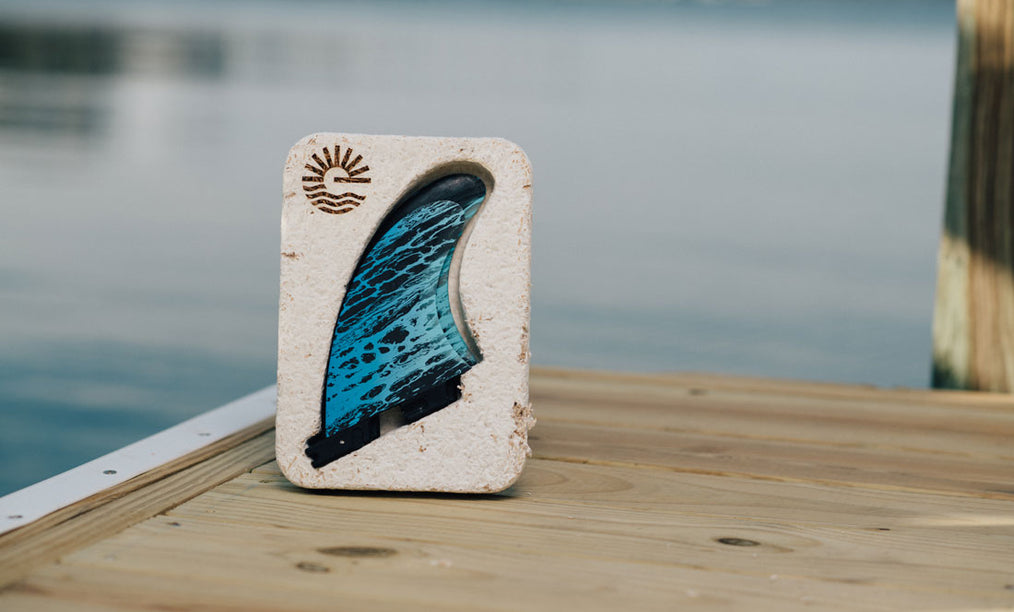Surfing is a rare form of personal expression. So too, are surfboards. Both are art forms.
Matt Parker, the shaper behind Album surfboards, loves to explore their relationship. Just as there shouldn't be boundaries in art, Parker insist, "There shouldn't be any rules of what a surfboard looks like."

To that end, he's never one to be hung up on convention. Instead, Parker likes to focus on just how powerful aesthetics are to emotion. That's one reason why his boards are as much about looks as they are feel. He knows the two feed each other.
Before he ever picked up a shaping planer, Parker was versed in fine art and graphic design. So when he dove into shaping a decade ago his penchant for aesthetics was a prerequisite.
Surfboards, like paint brushes, are tools of expression. Surfers like to find ones that will enable them to make their own individual looking strokes. And for Parker, the process of making a surfboard is no different.
Over the decades, conventional thought in surfboard design has been powered by surfing's competitive space race. Broader surf culture, interestingly enough, has always been a powered by the fusion of surfing's yin and yang: sport and art.
Sure, there are no hard fast rules for how a wave should be ridden, and its natural setting is inspiration enough to keep most people happy. But we humans love to gamify everything, and the ancient Hawaiians who gave us surfing were no different.
With kingdoms on the line, surfers invented new challenges on how to ride. Who can ride longest? Catch the biggest? Paddle the fastest? As time marched on those challenges led to modern day surfing. Who can Hang ten? Who can carve a figure eight? Ride the tube? Lacerate a wave face? Who can fly feet above the wave, rotate 360 degrees in mid-air, and land?

Each leap in performance was powered by newfangled board design, specifically tailored for the challenge of the day. The surfers who brought them forward often became famous in their own right.
But inevitably, once new moves become the new normal, things tend to get stale, and the wonder feelings fade. When boards get too reductionist, indeed to predictable, surfers lose more than they gain. Pro surfing veteran Josh Kerr understands that all too well.
Kerr was on tour for the better part of a decade, and supplied it with plenty of flare and fire. But during the last half of his tenure on tour he was bored, and he really didn't realize just how bored he was until he stopped competing.

"The last five years since I've been off tour, I've surfed five times more than my last five years on tour." says Kerr. The reason: "Equipment. Oh my goodness. I was just so excited to ride these different boards, and just be excited."
As soon as he stopped competing, Parker approached Kerr with a batch of designs he'd never seen. "He shaped me a wild quiver. There was one performance board, and the rest were asymmetrical twin fins, and all this different stuff, and I was like, 'This guy gets it.'"
Five years later, Kerr and Parker are now business partners on the brand. For Kerr, who's enjoyed success as a serial entrepreneur over the past decade, the fit is perfect.
In the fast changing landscape of surf retail, they've become leaders in the direct-to-consumer model. Today they're shipping surfboards, t-shirts, shoes, and surf accessories all over the world from their San Clemente headquarters.

The front half of their store is a beautiful retail space that serves as a showroom, art gallery, and studio room where they create content, most if it showcasing their boards, which are themselves works of art.
"But the back half of this place is where we ship everything," says Chris Parker, one of Album's shop managers. "We're packing boards, wetsuits, shirts, shoes, all that stuff is going out the back door everyday."
With their online business booming, the Album crew recently teamed up with A New Earth Project to see how they could make their packaging more sustainable. "I'm a huge fan of it," says Kerr, who's grown tired of the problem. "You don't think about it too much as a team rider when you get a batch of boards, but when you're in the business, watching them go out the door all day wrapped and wrapped it's like, 'Oh my god.' So much bubble wrap. It's nuts. Like this has to stop. And it just goes straight into the landfill."
Fortunately, Album became an early adopter of the S3 Pro, a new board packing solution that contains zero single use plastics. The whole system (save for two reusable rubber bands) is curbside recyclable.

Over the first few months shipping with the S3 Pro, the results were shocking. "It's crazy," says Parker. "They're a game changer. Our damage reports are way down, so we're saving huge money there. These things are way faster and easier for our guys to pack, so we're saving labor costs. And because the telescoping boxes allow you to custom fit it our customers are also seeing lower shipping costs. It some instances, especially with shortboards, we're sending our customers rebates. So customers who've bought from us before are seeing their shipping cost come down and they can't believe it."
After their success with the S3 Pro, the team at Album is revisiting all their shipping products with the help of the New Earth Approved Catalog.
"We're going to switch out of our existing padded mailers next," says Chris, pointing to his stack of old ones. "Whether we're shipping surfboard fins or T-Shirts in these, when you rip these envelopes open the dust from inside gets everywhere, and you're like, 'What is this stuff?' The padded mailers from A New Earth Project don't have that issue. They look cool too. We'll be putting our black stamp logo on there."

For Kerr, the push into more sustainable products is something he sees as no brainer for surf brands. "It's just about doing the best you can," he explains. "I think there's a lot more awareness now about this stuff, so it's good that surfers, and all these different outdoor advocates, are raising their voices."
